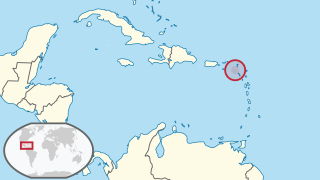A plea bargain is an agreement in criminal law proceedings, whereby the prosecutor provides a concession to the defendant in exchange for a plea of guilt or nolo contendere. This may mean that the defendant will plead guilty to a less serious charge, or to one of the several charges, in return for the dismissal of other charges; or it may mean that the defendant will plead guilty to the original criminal charge in return for a more lenient sentence.

Theft is the act of taking another person's property or services without that person's permission or consent with the intent to deprive the rightful owner of it. The word theft is also used as a synonym or informal shorthand term for some crimes against property, such as larceny, robbery, embezzlement, extortion, blackmail, or receiving stolen property. In some jurisdictions, theft is considered to be synonymous with larceny, while in others, theft is defined more narrowly. A person who engages in theft is known as a thief.
An inquisitorial system is a legal system in which the court, or a part of the court, is actively involved in investigating the facts of the case. This is distinct from an adversarial system, in which the role of the court is primarily that of an impartial referee between the prosecution and the defense.
An ex post facto law is a law that retroactively changes the legal consequences of actions that were committed, or relationships that existed, before the enactment of the law. In criminal law, it may criminalize actions that were legal when committed; it may aggravate a crime by bringing it into a more severe category than it was in when it was committed; it may change the punishment prescribed for a crime, as by adding new penalties or extending sentences; it may extend the statute of limitations; or it may alter the rules of evidence in order to make conviction for a crime likelier than it would have been when the deed was committed.

A traffic ticket is a notice issued by a law enforcement official to a motorist or other road user, indicating that the user has violated traffic laws. Traffic tickets generally come in two forms, citing a moving violation, such as exceeding the speed limit, or a non-moving violation, such as a parking violation, with the ticket also being referred to as a parking citation, or parking ticket.

Penal labour is a term for various kinds of forced labour that prisoners are required to perform, typically manual labour. The work may be light or hard, depending on the context. Forms of sentence involving penal labour have included involuntary servitude, penal servitude, and imprisonment with hard labour. The term may refer to several related scenarios: labour as a form of punishment, the prison system used as a means to secure labour, and labour as providing occupation for convicts. These scenarios can be applied to those imprisoned for political, religious, war, or other reasons as well as to criminal convicts.

The Proceeds of Crime Act 2002 (POCA) is an act of the Parliament of the United Kingdom which provides for the confiscation or civil recovery of the proceeds from crime and contains the principal money laundering legislation in the UK.
Non bis in idem which translates literally from Latin as 'not twice in the same [thing]', is a legal doctrine to the effect that no legal action can be instituted twice for the same cause of action. It is a legal concept originating in Roman civil law, but it is essentially the equivalent of the double jeopardy doctrine found in common law jurisdictions, and similar peremptory plea in some modern civil law countries.

Pornography has been dominated by a few pan-European producers and distributors, the most notable of which is the Private Media Group that successfully claimed the position previously held by Color Climax Corporation in the early 1990s. Most European countries also have local pornography producers, from Portugal to Serbia, who face varying levels of competition with international producers. The legal status of pornography varies widely in Europe; its production and distribution are illegal in countries such as Ukraine, Belarus and Bulgaria, while Hungary has liberal pornography laws.

Detention is the process whereby a state or private citizen lawfully holds a person by removing their freedom or liberty at that time. This can be due to (pending) criminal charges preferred against the individual pursuant to a prosecution or to protect a person or property. Being detained does not always result in being taken to a particular area, either for interrogation or as punishment for a crime. An individual may be detained due a psychiatric disorder, potentially to treat this disorder involuntarily. They may also be detained for to prevent the spread of infectious diseases such as tuberculosis.

Lesbian, gay, bisexual, and transgender (LGBT) people in Aruba, which is a constituent country of the Kingdom of the Netherlands, have evolved remarkably in the past decades. Both male and female same-sex sexual activity are legal in Aruba, but same-sex marriage is not legal. Same-sex couples with Dutch nationality must travel to the Netherlands or its special municipalities to get married and the legal protection of marriage is not unconditional. Since 1 September 2021, registered partnerships have been available to both opposite-sex and same-sex couples.

The police tribunal is the traffic court and trial court which tries minor contraventions in the judicial system of Belgium. It is the lowest Belgian court with criminal jurisdiction. There is a police tribunal for each judicial arrondissement ("district"), except for Brussels-Halle-Vilvoorde, where there are multiple police tribunals due to the area's sensitive linguistic situation. Most of them hear cases in multiple seats per arrondissement. As of 2018, there are 15 police tribunals in total, who hear cases in 38 seats. Further below, an overview is provided of all seats of the police tribunal per judicial arrondissement.

The Italian Code of Criminal Procedure contains the rules governing criminal procedure in every court in Italy. The Italian legal order adopted four codes since the Italian Unification. After the first two codes, in 1865 and 1913, the Fascist Government established in 1930 a new code adopting an inquisitorial system. In 1988 the Italian Republic adopted a new code, that could be considered to be somewhere in between the inquisitorial system and the adversarial system.
Under Dutch law, moord (murder) is the intentional and premeditated killing of another person. Murder is punishable by a maximum sentence of life imprisonment, which is the longest prison sentence the law will allow for, unless the sentence is commuted or pardoned by the Sovereign of the Netherlands. However, this happens and few appeals to the King for clemency have ever been successful.
Key disclosure laws, also known as mandatory key disclosure, is legislation that requires individuals to surrender cryptographic keys to law enforcement. The purpose is to allow access to material for confiscation or digital forensics purposes and use it either as evidence in a court of law or to enforce national security interests. Similarly, mandatory decryption laws force owners of encrypted data to supply decrypted data to law enforcement.

Lesbian, gay, bisexual, and transgender (LGBT) people in Sint Maarten may face legal challenges not experienced by non-LGBT residents. Both male and female same-sex sexual activity are legal in Sint Maarten, a constituent country of the Kingdom of the Netherlands, but same-sex marriage is not legal. Same-sex couples with Dutch nationality must travel to the Netherlands to get married, and that will not provide the rights of marriage in Sint Maarten.

Lesbian, gay, bisexual, and transgender (LGBT) rights in Bonaire are very progressive by Caribbean standards. Bonaire forms part of the Caribbean Netherlands and is a special municipality of the Netherlands. Both male and female same-sex sexual activity are legal in Bonaire, with same-sex marriage and adoption being legal since 2012. In addition, discrimination on the basis of "heterosexual and homosexual orientation" is outlawed.

Lesbian, gay, bisexual, and transgender (LGBT) rights in Sint Eustatius are quite progressive by Caribbean standards. Sint Eustatius forms part of the Caribbean Netherlands and is a special municipality of the Netherlands. Both male and female same-sex sexual activity are legal in Sint Eustatius, with same-sex marriage, registered partnership, and adoption being legal since 2012. In addition, discrimination on the basis of "heterosexual and homosexual orientation" is outlawed.

Lesbian, gay, bisexual, and transgender (LGBT) rights in Saba are very progressive by Caribbean standards. Saba forms part of the Caribbean Netherlands and is a special municipality of the Netherlands. Both male and female same-sex sexual activity are legal in Saba, with same-sex marriage and adoption being legal since 2012. In addition, discrimination on the basis of "heterosexual and homosexual orientation" is outlawed.
The legal status of female genital mutilation (FGM), also known as female genital cutting (FGC), differs widely across the world.














